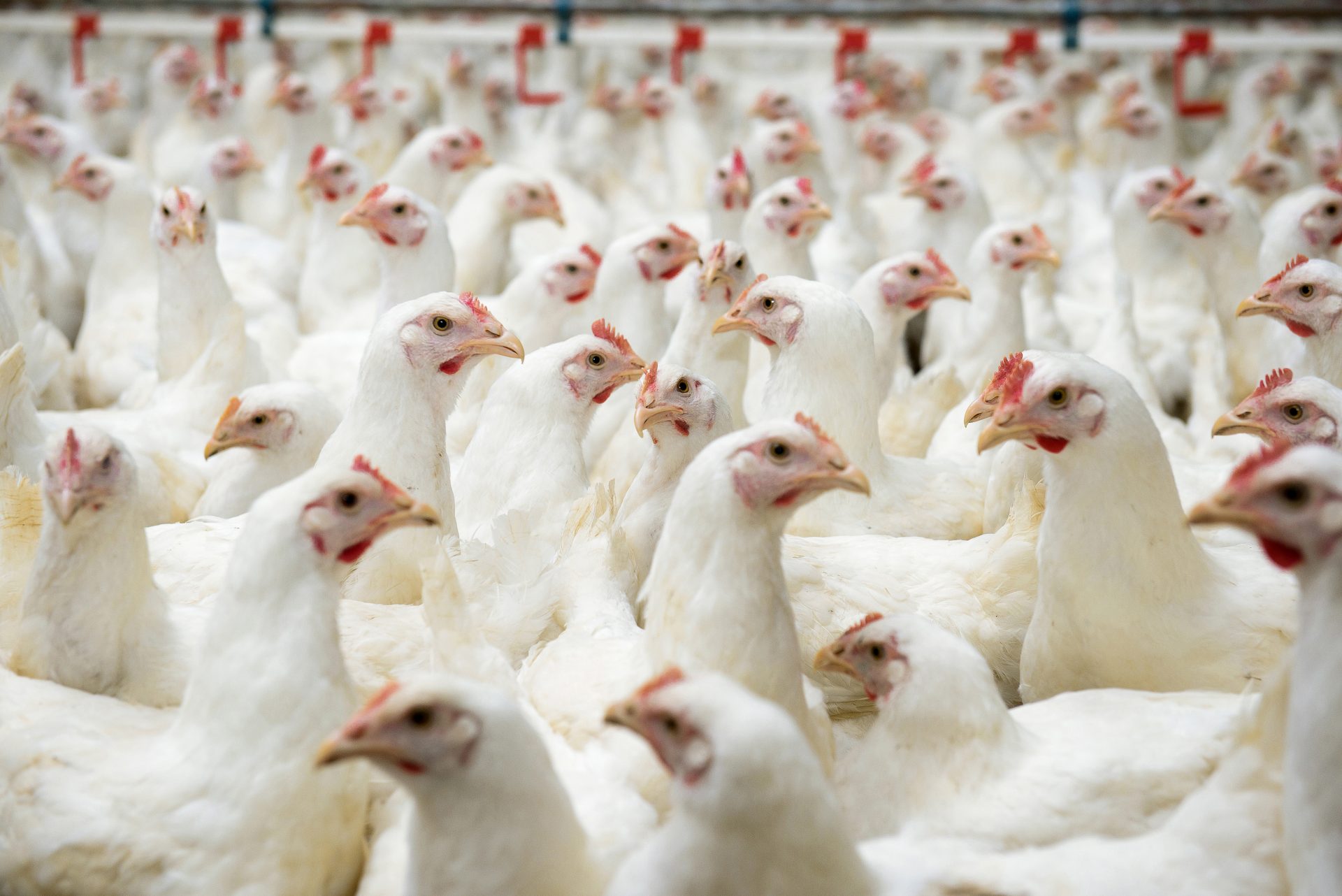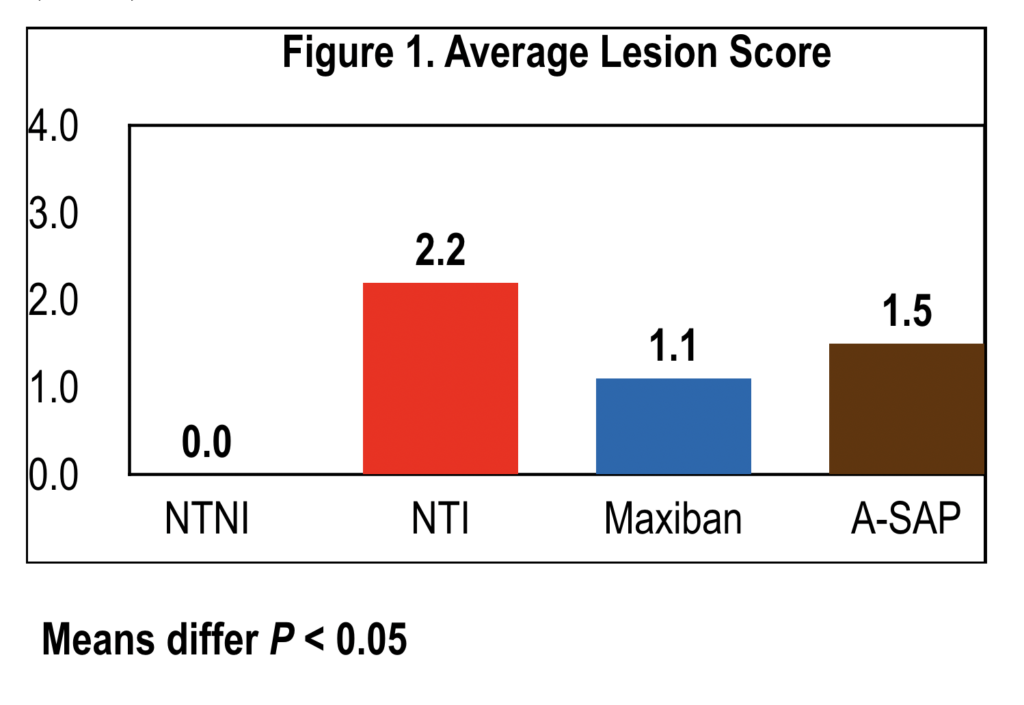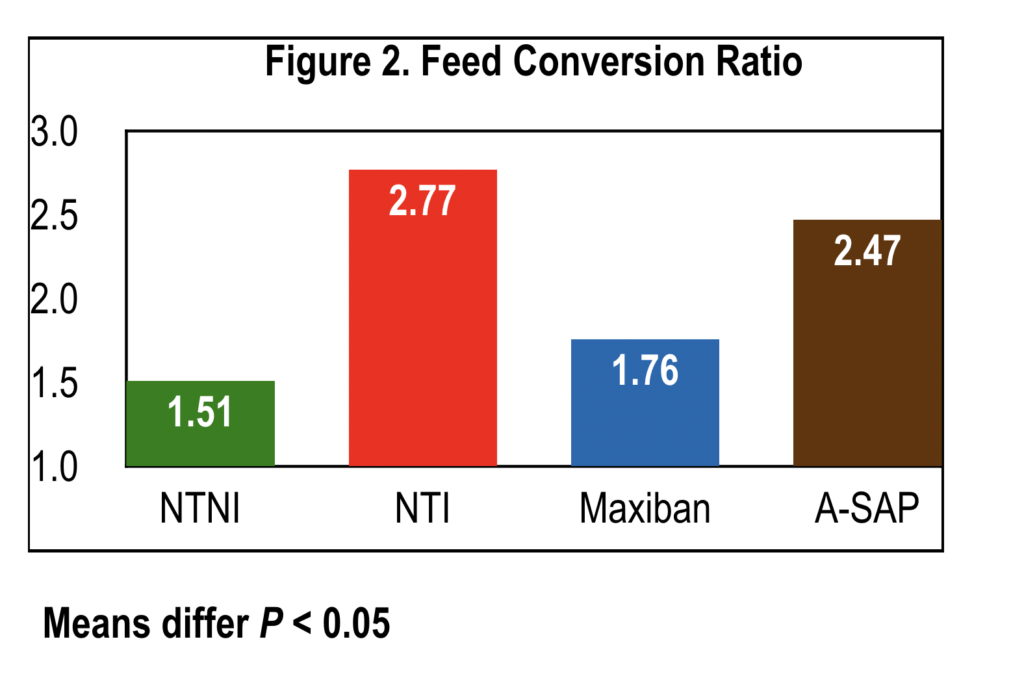
A-SAP Benefits Broiler Health (2)
A-SAP is a blend of plant-based technologies and builds upon DPI’s portfolio of products being promoted for their performance and health benefits to the animal industry. Thus, the objective of this experiment was to determine the effectiveness of A-SAP for minimizing performance loss in commercial chickens infected with a mixture of Eimeria species.
256 day of hatch male broiler chicks (Cobb 500) were raised in coccidia-free battery cages. At 14 days of age (Day 0 of challenge period), birds (8 birds/cage with 8 cages/treatment) were randomly assigned to one of four treatments: 1) Non-treated, non-infected (NTNI); 2) Non-treated, infected (NTI); 3) Maxiban® (narasin and nicarbazin) at 72 g/ton, infected; and 4) A-SAP at 250 mg/kg, infected. Birds received the coccidial inoculum via oral gavage (E. acervulina – 100,000 oocysts/bird, E. maxima – 50,000 oocysts/bird and E. tenella – 75,000 oocysts/bird). Bird weight gain, feed consumption, feed conversion (feed:gain) and water consumption were determined for the six-day treatment period, with values presented being adjusted accordingly for mortalities. On Day 6 of the challenge period, all birds were coccidia lesion scored using the system of Johnson and Reid (1970).

- The noted improvements in lesion scores support the fact that A-SAP is working enterically to promote a healthy relationship of indigenous microbial populations. Colonization of microbiota and maintenance of a homeostatic population allows for optimum nutrient utilization, gut health, immune function and animal performance, especially during a health challenge such as coccidiosis.
- Weight gain of birds supplemented with A-SAP was increased by 1 point in contrast to the NTI group. Furthermore, feed conversion improved (P < 0.05) by 30 points as a result of A-SAP supplementation. This improvement in performance supports the opportunity for A-SAP supplementation to recover some lost performance during a coccidiosis challenge.

